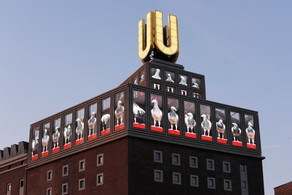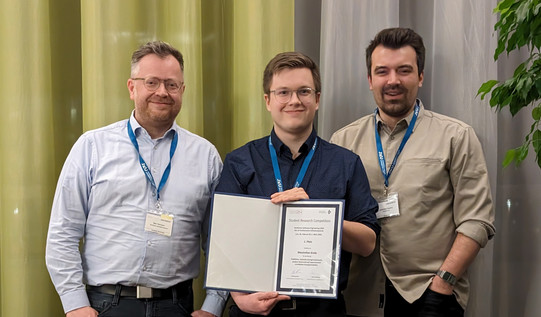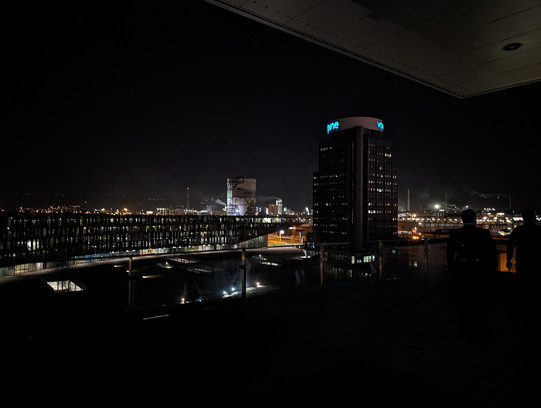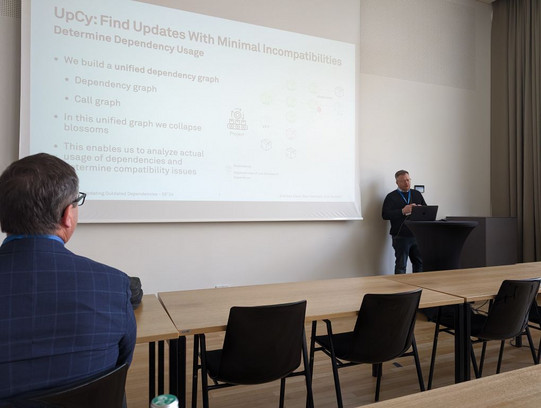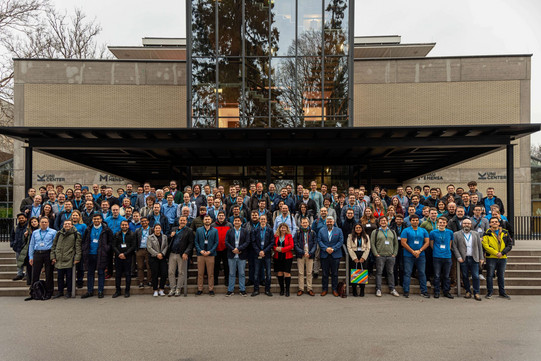We presented last year's best work on the annual conference on Software Engineering of the German Informatics Society
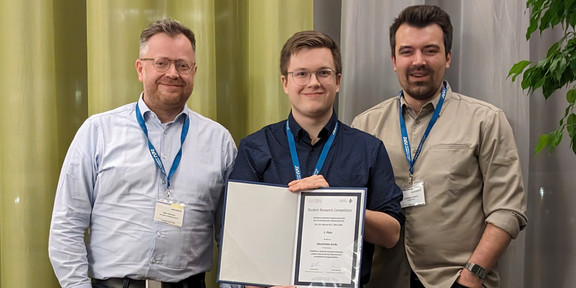
The annual conference on Software Engineering of the German Informatics Society is an annual event hosted in a city in Germany, Austria, or Switzerland. It is a "best-of event", meaning that submissions are only considered for presentation if they have been already published at a top-tier conference or major journal in the area of software engineering. It is a great way to catch up with all the great work done in your neighborhood.
This years, we were invited to present three publications in Linz (Austria). Johannes Düsing presented our work on static program analysis result reuse that was presented first at the 38th IEEE/ACM International Conference on Automated Software Engineering (ASE 2023) in Luxemburg in September. Stefan Winter of LMU Munich presented our work on a data analysis of a decade of publications with lots of insights about research artifacts that was first presented at the ACM Joint European Software Engineering Conference and Symposium on the Foundations of Software Engineering (ESEC/FSE) 2022 in Singapore. Ben Hermann presented our work on software supply chain stability that was first presented at the IEEE/ACM International Conference on Software Engineering (ICSE) 2023 in Melbourne.
Ben Hermann was also invited to participate in a panel on Research Software Engineering together with Anna-Lena Lamprecht (Uni Potsdam), Jan Linxweiler (TU Braunschweig), Florian Goth (Uni Würzburg), and Falk Howar (TU Dortmund). In a lively discussion the panel and the audience discussed the details of the emerging field.
Our student Maximilian Krebs participated in the Student Research Competition with his Bachelor thesis "Predictive, static energy consumption analysis based on
experimentally determined energy models", which he completed last summer. He won the first prize for his thesis in a tough competition against 6 other Bachelor and Master theses. In the laudation, the high level of scientific rigor was emphasized by the Jury as well as the high relevance of his thesis to the field of sustainability in software engineering. Congrats Max! Well done!
Presented Work
Persisting and Reusing Results of Static Program Analyses on a Large Scale
Johannes Düsing, Ben Hermann
In Proceedings of the 38th IEEE/ACM International Conference on Automated Software Engineering (ASE 2023).
DOI: https://doi.org/10.1109/ASE56229.2023.00080
Artifact: https://doi.org/10.5281/zenodo.8238151
UpCy: Safely Updating Outdated Dependencies
Andreas Dann, Ben Hermann, and Eric Bodden
In Proceedings of the IEEE/ACM 45th International Conference on Software Engineering (ICSE)
DOI: https://doi.org/10.1109/ICSE48619.2023.00031
Artifact: https://doi.org/10.5281/zenodo.7037673
A Retrospective Study of One Decade of Artifact Evaluations
Stefan Winter, Christopher S. Timperley, Ben Hermann, Jürgen Cito, Jonathan Bell, Michael Hilton, and Dirk Beyer
In Proceedings of the 30th ACM Joint European Software Engineering Conference and Symposium on the Foundations of Software Engineering (ESEC/FSE 2022).
Association for Computing Machinery, New York, NY, USA, 145–156.
DOI: https://doi.org/10.1145/3540250.3549172
Artifact: https://doi.org/10.5281/zenodo.7082407

